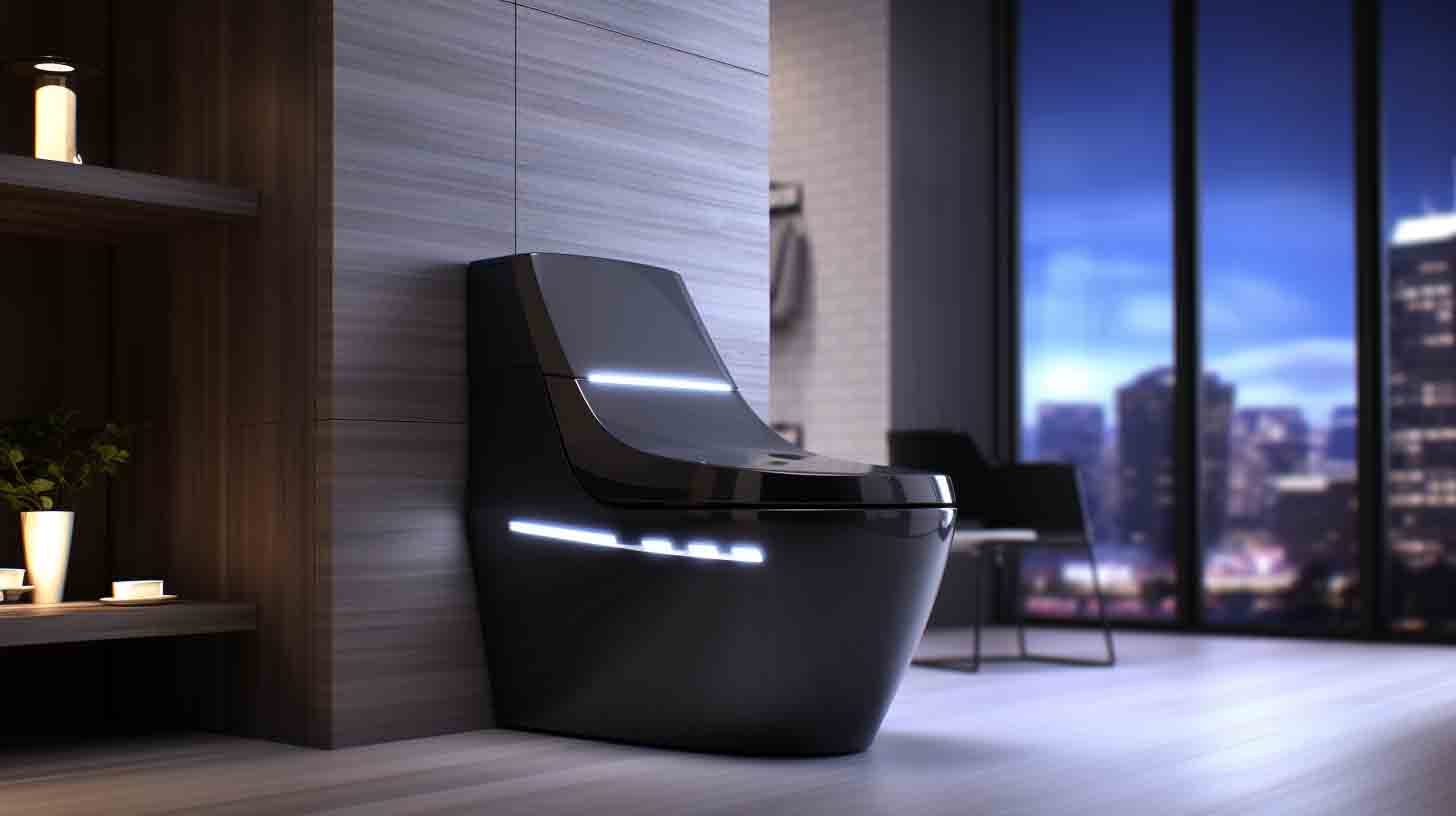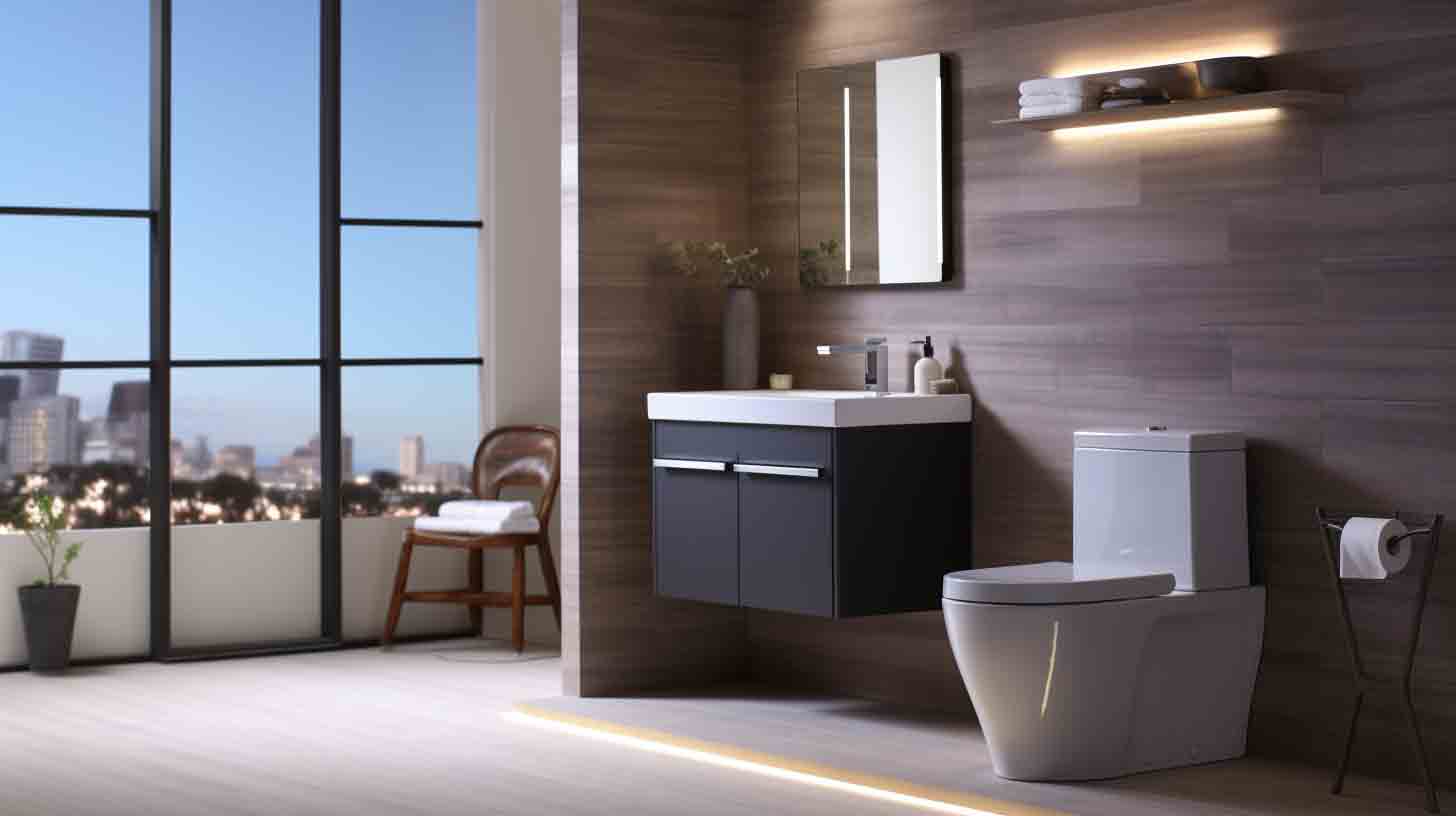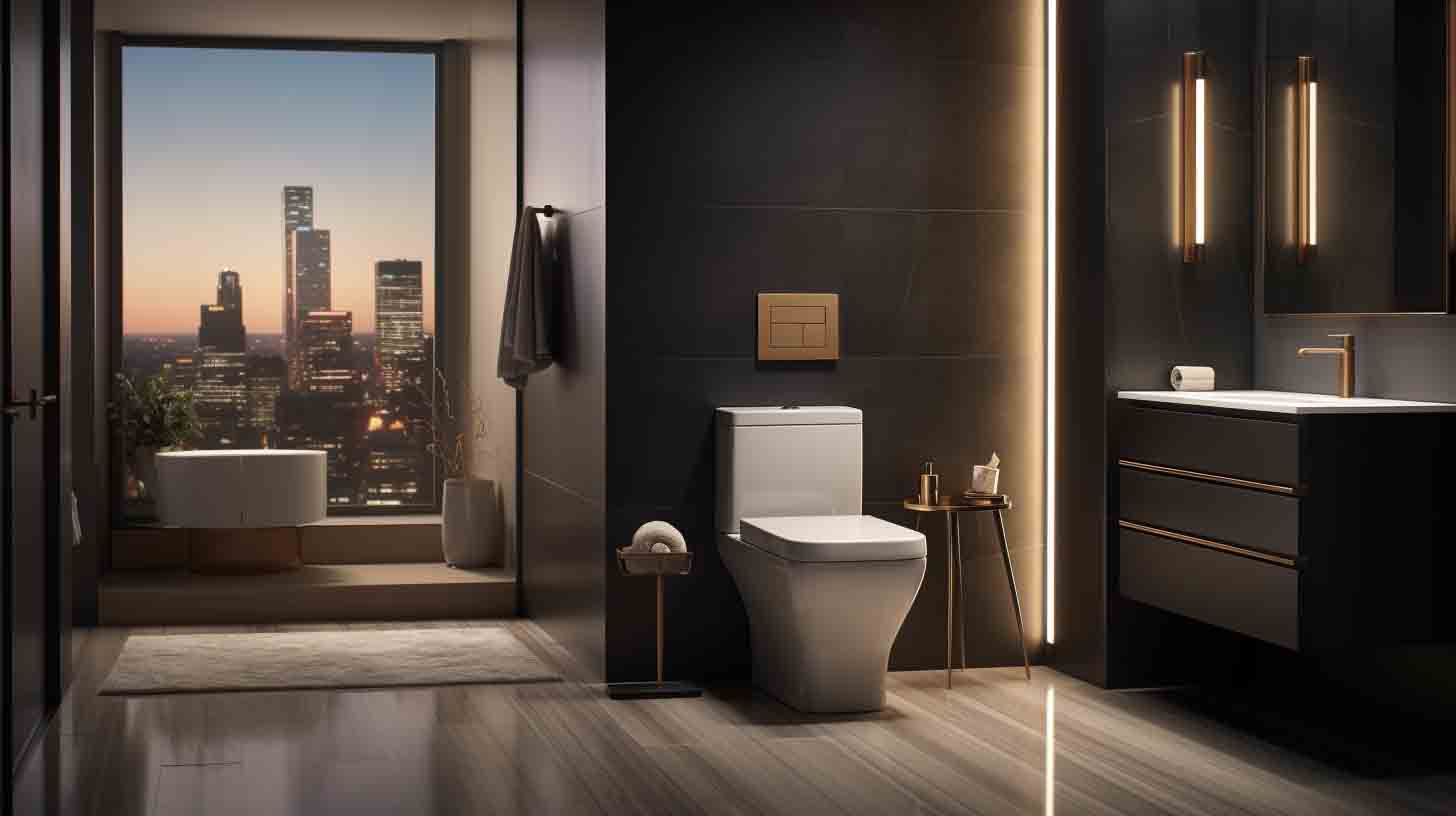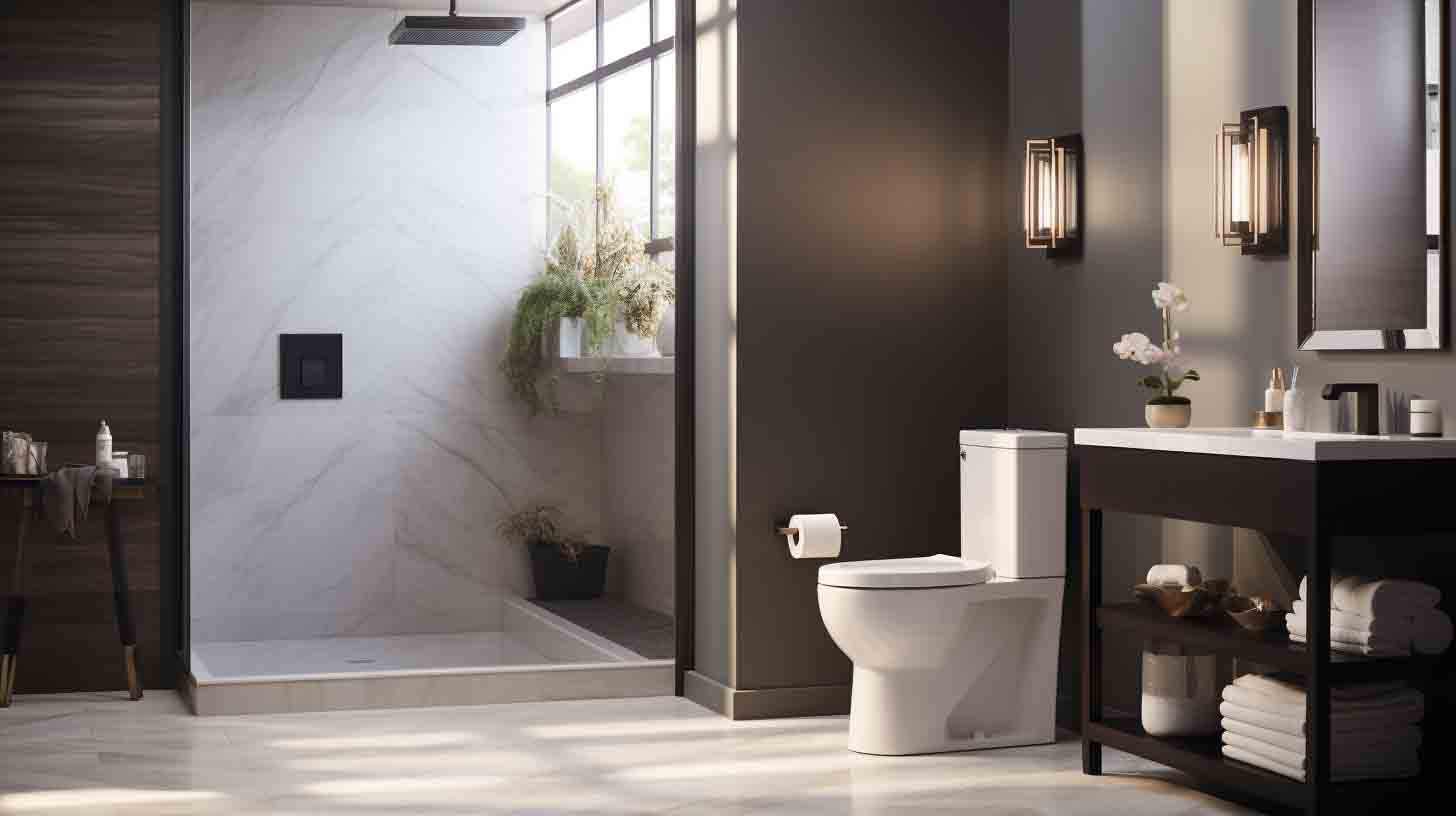As technology continues to permeate every aspect of our lives, it should come as no surprise that even the humble toilet has undergone a smart makeover. With features designed to enhance hygiene, comfort, and energy efficiency, smart toilets are rapidly gaining popularity among homeowners and businesses alike.
In this discussion, we will explore the rise of smart toilets, their advanced hygiene features, the comfort and convenience upgrades they offer, and their potential impact on energy efficiency and sustainability.
But that's not all, as we also delve into the exciting possibilities that the future holds for these intelligent bathroom fixtures. So, let's take a seat and discover the fascinating world of smart toilet features.

- Smart toilets have revolutionized the daily bathroom experience by integrating IoT technology and offering a wide range of features and functionalities.
- Advanced hygiene features such as self-cleaning, built-in bidet sprays, and elimination of toilet paper waste enhance cleanliness and reduce environmental impact.
- Comfort and convenience upgrades like heated seats, automatic flushing, and sensors detecting when the user is finished provide a heightened level of comfort and convenience.
- Smart toilets promote energy efficiency and sustainability through dual-flush technology, eco-friendly materials, and lower environmental footprint, contributing to water conservation and reduced strain on water treatment facilities.
The rise of smart toilets has revolutionized the way we experience and interact with one of the most essential fixtures in our daily lives. With the integration of Internet of Things (IoT) technology, smart toilets have become more than just a basic necessity. These innovative bathroom fixtures now offer a wide range of features and functionalities that enhance our health and wellness.
IoT integration in smart toilets allows for seamless connectivity and control, enabling users to monitor and manage various aspects of their toilet experience through smartphone apps or voice commands. This includes features like automatic flushing, adjustable water temperature and pressure, personalized bidet settings, and even the ability to analyze urine and stool samples for potential health indicators.
The health and wellness benefits of smart toilets are undeniable, providing a more hygienic and comfortable bathroom experience while also offering valuable insights into our overall well-being.

With the integration of Internet of Things (IoT) technology, smart toilets have not only revolutionized our bathroom experience but also introduced advanced hygiene features that promote cleanliness and well-being. These features take advantage of smart toilet technology to provide a more hygienic and convenient bathroom experience.
One of the key benefits of smart toilets is the self-cleaning feature. Equipped with sensors and cleaning mechanisms, smart toilets can automatically clean the bowl, eliminating the need for manual scrubbing. This not only saves time and effort but also ensures a more thorough and effective cleaning process.
Another advanced hygiene feature is the bidet function. Smart toilets often come with built-in bidet sprays that provide a gentle and precise cleaning experience. This feature eliminates the need for toilet paper, reducing waste and promoting better hygiene.
Lastly, some smart toilets even offer air drying and deodorizing functions. After using the bidet function, the toilet can release warm air to dry the user, eliminating the need for toilet paper or towels. Additionally, these toilets are equipped with deodorizing systems that neutralize odors, ensuring a more pleasant bathroom environment.
Overall, the advanced hygiene features of smart toilets contribute to a cleaner and more comfortable bathroom experience. By leveraging smart toilet technology, these features provide numerous benefits such as improved hygiene, reduced waste, and enhanced convenience.
| Advanced Hygiene Features |
|--------------------------|
| Self-cleaning |
| Bidet function |
| Air drying and deodorizing|
Comfort and convenience are further enhanced with a range of upgrades available in smart toilets.
One notable upgrade is the inclusion of heated seats, which offer a luxurious and comfortable experience. These seats are equipped with heating elements that provide warmth during use, eliminating the discomfort caused by sitting on a cold toilet seat.
Additionally, smart toilets feature automatic flushing, eliminating the need for manual flushing after use. The sensors in the toilet detect when the user is finished and automatically initiate the flush, ensuring a hands-free and hassle-free experience.
With these upgrades, smart toilets provide a heightened level of comfort and convenience, offering users an innovative and enjoyable bathroom experience.

Smart toilets offer advanced features for energy efficiency and sustainability. These innovative fixtures are designed to promote water conservation and reduce environmental impact. One key aspect of their energy-saving capabilities is the integration of dual-flush technology, allowing users to choose between a partial flush for liquid waste and a full flush for solid waste. This not only reduces water consumption but also lowers the strain on water treatment facilities.
Additionally, smart toilets are made from eco-friendly materials that are durable and recyclable, further reducing their environmental footprint. These materials often include ceramic and other sustainable alternatives.
The future of smart toilets holds great potential for advancements in hygiene technology and improved user experience. With the increasing integration of internet connectivity and data tracking capabilities, smart toilets could revolutionize bathroom routines.
These toilets will be able to collect and analyze data on individual usage patterns, allowing for personalized recommendations on hygiene practices. Additionally, health monitoring and analysis will be a major focus in the future of smart toilets. By incorporating sensors and advanced algorithms, these toilets will be able to detect and analyze various health indicators such as urine composition, blood pressure, and body temperature.
This data can then be shared with healthcare professionals, enabling early detection of potential health issues. The future of smart toilets promises to enhance hygiene practices and provide valuable insights for better health management.

In conclusion, the development and implementation of smart toilet features have revolutionized the bathroom experience. These features provide advanced hygiene features, comfort and convenience upgrades, and energy efficiency and sustainability.
With the continuous advancements in technology, the future of smart toilets holds promising possibilities. These possibilities include further enhancing user experience and promoting overall well-being.